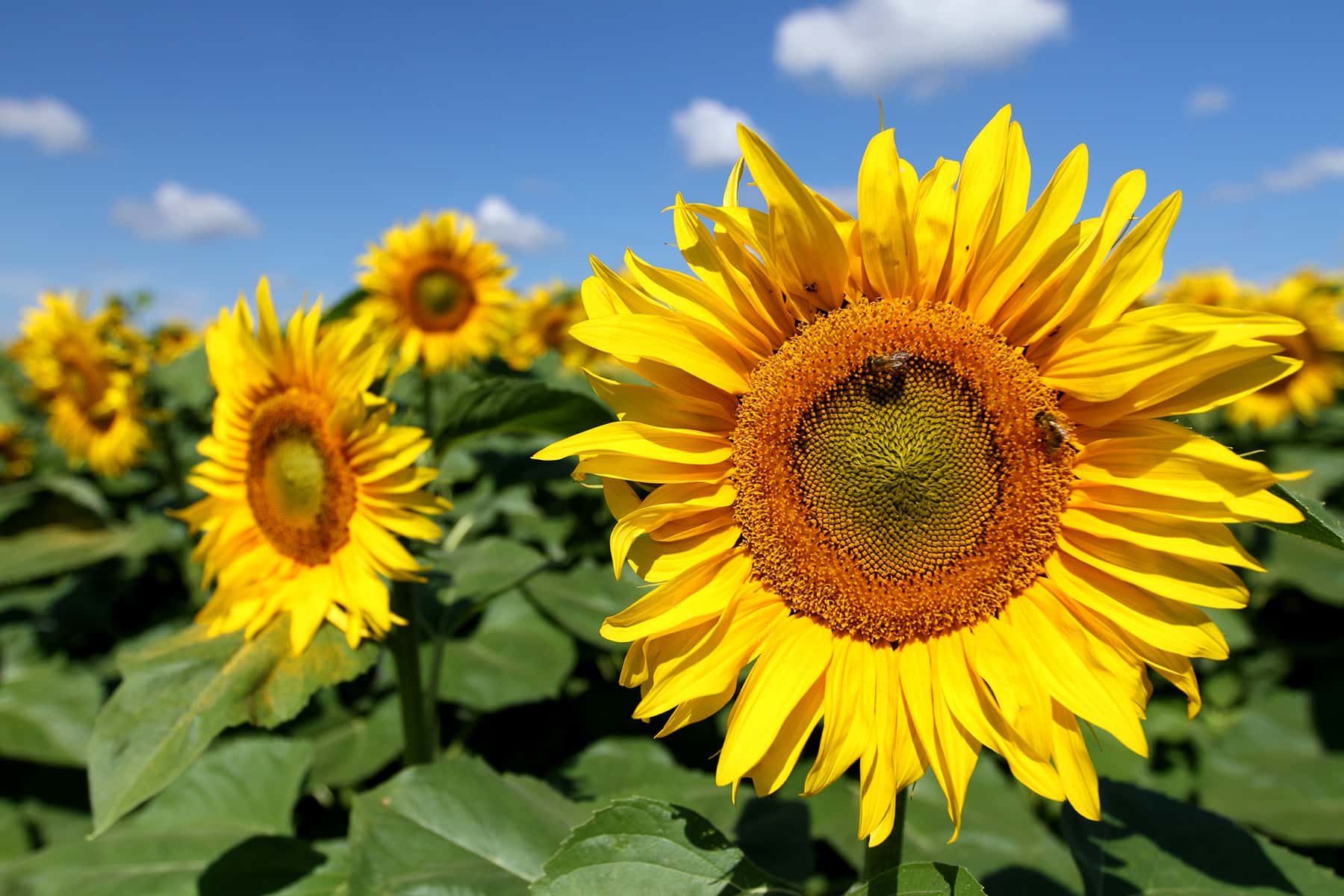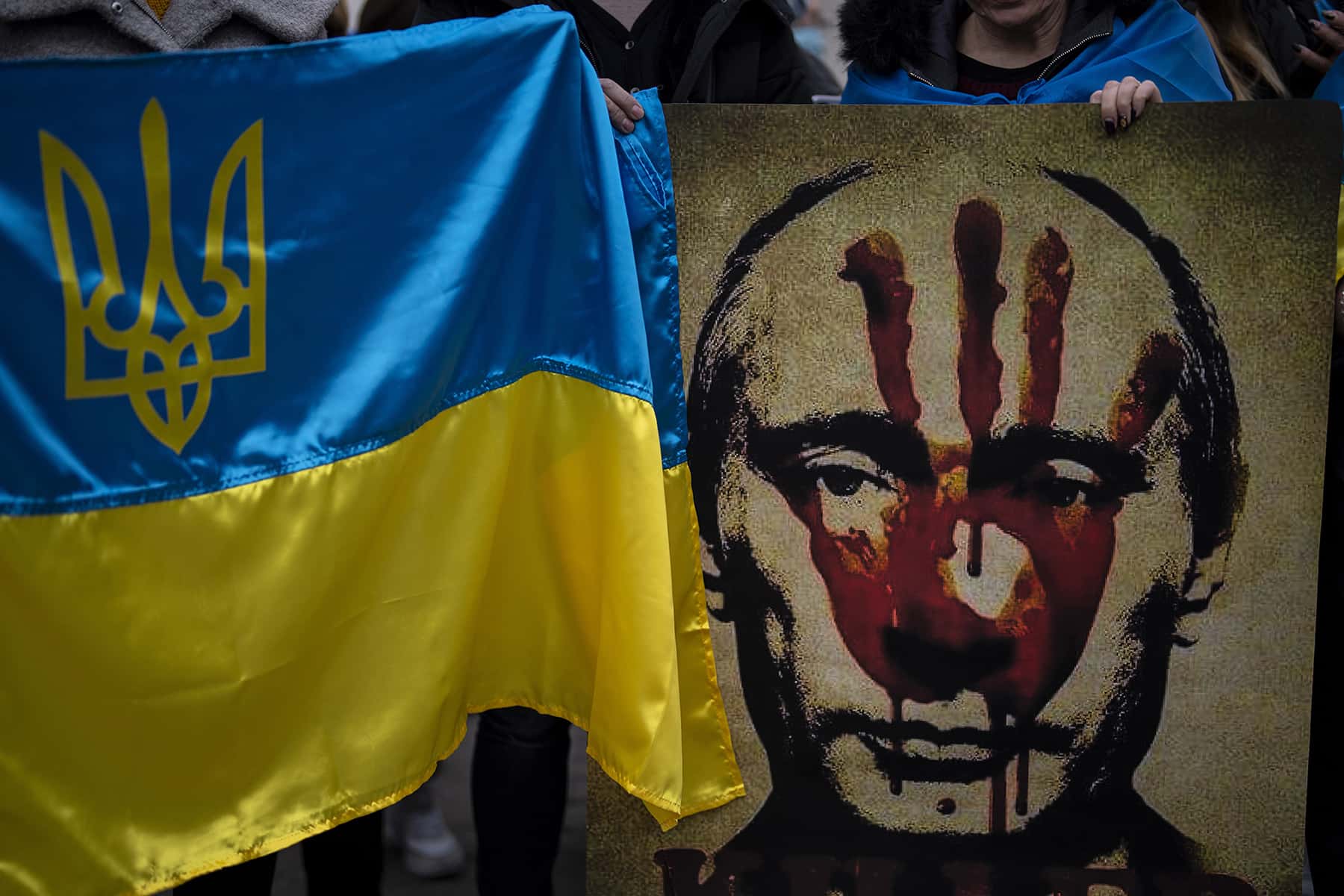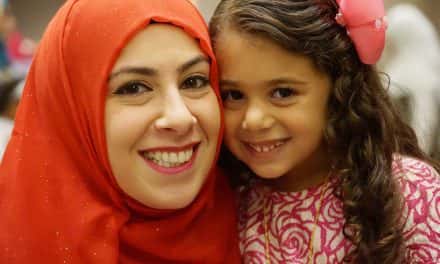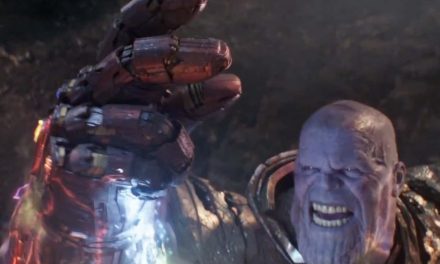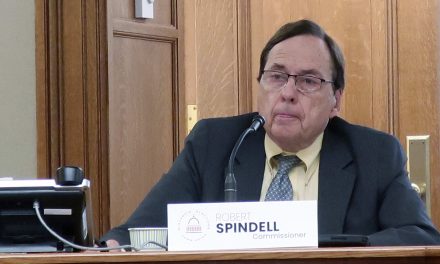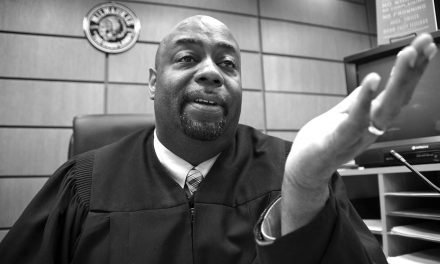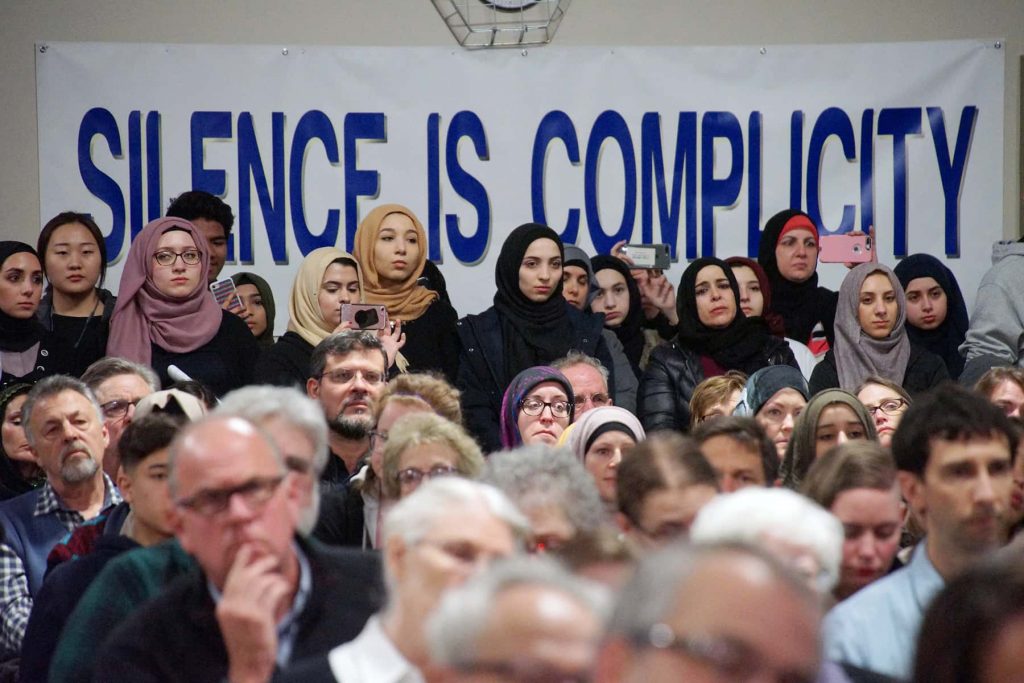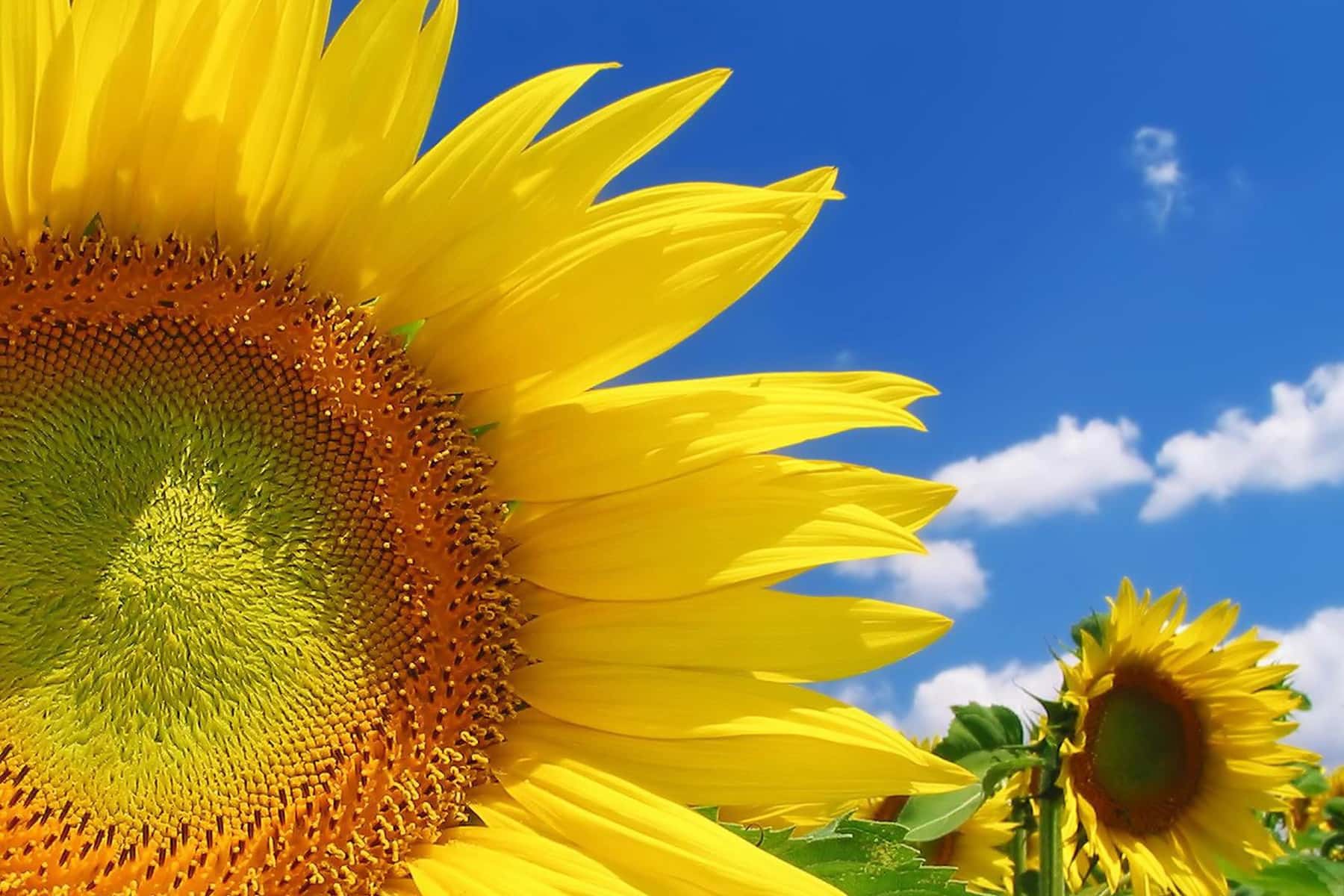
Putin’s invasion of Ukraine has forced Americans across the political spectrum to consider many issues. While taking place thousands of miles away, there is still a very real impact close to home. For me, it included considering how I was denied my Russian-Ukrainian heritage by a generation of hypocrisy and bias.
For a time in my early childhood I lived with my mother’s parents in Milwaukee, while my father was in the military and deployed overseas for war. I remember the stories I was told about my grandmother’s family, how we could trace her ancestors back to the time when Columbus discovered the New World.
In a German family Bible, dozens of generations were recorded from the 1460s to 1850, when they emigrated to Iowa and became farmers. My great-grandfather, my grandmother’s father, was the first born of his generation in America. My grandmother would eventually move to Milwaukee and spend her entire life here. She lived in the city in the 1920s as a young woman, at the same time as my father’s mother. While their age was the same, their experiences were already drastically different.
My Russian grandmother was born in Kyiv, and moved to Petrograd (Saint Petersburg) before emigrating to America. She had family residing in Milwaukee, and came to live on Walnut Street in what was then known as the city’s Jewish ghetto. She knew my grandfather from the old country, but he had relocated with his family from Kyiv to Baltimore.
My grandfather came to Milwaukee as part of the courtship with my grandmother. So he lived here for a time, but they would wed in Baltimore and plant roots there. While I knew my mother’s family history, my father’s was always shrouded in mystery. Part of that was due to the persecution of immigrants in America back then, which is not dissimilar from today.
I grew up being taught in school about how America was a beacon of liberty, a defender of democracy, and offered as proof how we liberated Europe from Hitler’s Nazi Germany. In class we learned how millions of Jews were exterminated in a genocide that was both unimaginable and traumatic to me as a young child. That was mixed with the hushed whispers from aunts and uncles about how we lost family members in the Holocaust.
I was unable to reconcile the history lessons in school books hailing American exceptionalism, against what I witnessed for myself and heard from others. Like how in the 1950s, not long after World War 2, neighborhood kids would throw rocks at my father as a boy and call him a “kike,” the racial slur for being Jewish. They would chase him and allow no room to escape, which forced him to climb up a tree to avoid their fists.
I never made the connection as a child for why I was forbidden to talk about my grandparents, when my father’s job took us to Stone Mountain, Georgia. It was a place in the South where to be Jewish was as hated to White people as was being Black.
To be Jewish was to invite persecution. To be ethnically Russian was to be unpatriotic and an enemy of America. We could not admit either ethnicity or faith due to fear, but I was too young to understand. I looked White like everyone else in my class.
It makes sense now, but at the time I remember thinking it strange how no one was ashamed of any German ancestry. Even though Nazi Germany was terrible, the adults I knew seemed to celebrate them and their military achievements with awe.
National identity was also not something I understood, being born in America and saying the Pledge of Allegiance each morning in elementary school. I think back upon these things, as I have done over the years, but now in the light of the invasion of Ukraine by Putin’s military.
My grandparents were ethnically Russian, but they were born and lived in Ukraine. They were peasants who worked on family farms in a rural area. If any records had been kept, those would have been destroyed during revolutions or war. My grandfather did not even know his actual birthday, and picked one when he was processed at Ellis Island.
So while my mother’s family has a road map going back almost a couple dozen generations, my father’s goes back to mere living memory. And so much information was lost before getting to me. When my grandparents were alive I would ask about the “Old Country,” but they never wanted to talk about it. Their life there had been painful and full of loss, and to talk about it stirred unwanted memories of the dead.
What cultural fabric my grandparents held onto, those threads were denied me. Their identity, who they were, came from their Jewish faith. And as Russians living in Ukraine they spoke Yiddish. Which birthright could I claim? And, while America could be tolerant of foreign things, it seemed unwilling to truly accept them.
I do not know what the concept of “state identity” was in my grandfather’s day. He was born in Ukraine, but I only ever heard him say he was Russian. And he never implied that Ukraine was a part of Russia. No one ever explained family migration or ethnic connections. I can only use modern examples for reference to understand.
Immigrants today can assimilate into American culture, but also remain insulated and live in a bubble. For example, Koreans can move to America and never learn English if they stay within their immigrant community. Their children born here become Korean Americans. If those children marry other Korean Americans, they remain Americans but purely ethnically Korean. In old Europe, there were many ethnic and religious divides that remain in place now.
As I grew up in the shadow of the Cold War, and was taught to hate the Soviet Union, there was a lot of incentive to reject any family lineage remotely related to Russia. There was little distinction at that time between Czar-era Russians and 1980s Soviets. Russians were all retroactively Communists and by definition the sworn enemy of liberty and America.
On top of that, there was little distinction between what I learned about Ukrainians and Russians. The analogy was like Wisconsin and Georgia were states, but part of America. So Ukraine and the other Georgia were part of the Soviet Union. Except, the analogy compared unequally the distinction between states that formed a union and sovereign nations that had been colonized.
Never was I taught how the Ukrainians had been so brutalized by Stalin that they welcomed the German invasion. I still do not know a great deal about Ukrainian history, but I do understand that both the Russians and Germans each slaughtered a great many Ukrainians in order to control the country.
Thankfully my years living overseas gave me the tools and opportunity to be deprogrammed from America’s culture of White racism and supremacy propaganda. But it has been no less bewildering to watch history unfold in recent years now that I am back home.
Read: Thich Nhat Hanh: Remembering the influential Buddhist monk who taught me to be a better Christian
Reagan Republicans of my youth vilified the Russians, and diverted trillions of tax dollars on war machines to defend against them. Trump Republicans of my adulthood bend over to worship the Russians, and engineer sketchy deals for their business benefactors that betray Americans in order to graft billions from the public trough.
As a child, if you were anything less than an American you were a traitor to your nation. Now, many Americans say they would rather be Russian than a Democrat. To support President Joe Biden is a sign of weakness. Putin, a brutal dictator, is someone to emulate.
“Treason is the crime of attacking a state authority to which one owes allegiance. This typically includes acts such as participating in a war against one’s native country, or attempting to overthrow its government for foreign power. A person who commits treason is known in law as a traitor.”
So how is it that Americans who support a foreign power over their fellow citizens see themselves as patriots, and any American who supports America’s foundational ideology of democracy is a traitor? How is it patriotic to worship Trump, who allowed Putin to offer bounties that paid our enemies for every American soldier killed?
These Americans do not see themselves as traitors to America, because they are patriots to the ideology of White Supremacy in whatever form it takes. They are the same patriots who supported the January 6 insurrection, and continue to promote Trump’s Big Lie.
When I take a step back, the insanity of America’s cultural schizophrenia makes sense. It is all based on hate and fear, and used by an oligarchy class to maintain power. The White racist culture I was exposed to growing up in the South taught me many things. One theme was constantly reinforced, that no matter how bad life was as a White person, at least we were better than the (N-Word). But after that, if there was not a person of color around to victimize, then weak White people were the most convenient next target.
I later thought of it as a form of social cannibalism. When there was not an “other” to attack, White people turned on themselves and ate their own. It is a hateful culture that only respects the bully. And that is never stable because it requires feudalistic loyalty to avoid persecution. There is no honor among thieves.
I continue to see that kind of bullying today. It feeds the fear of so many Americans and fuels their massive insecurities. The end result is more hate, and financial profit that rewards maintaining hate. It seems like the very idea of hope is a threat to their belief system, and bank accounts. That is a very sad commentary for a nation that makes it a point to insist it is founded on Christian principles. Which, upon consideration, may be apt because so much of American Christian philosophy is completely detached from the actual teachings of the Jewish peasant Jesus who became the Messiah.
It is with all these experiences and perspectives that I watch Ukraine fight off the inhuman invasion by Putin’s military. As a photojournalist I have covered Ukrainian solidarity rallies in Milwaukee. As I listened to the ethnic songs of strength, unity, and defiance I was aware how familiar they were. But even though my family was from Kyiv, I had no cultural connection or grasp of the language.
Even though I am disconnected from my birthright, it is still mine – especially as an American. Democracy, for anyone who has forgotten, is the right for a people to follow their own self-determination. To elect their own leaders.
While Americans confuse capitalism for democracy, they are not one and the same. A democracy does not guarantee liberalism either. If there is a majority of people who are terrible, it will be a democracy of terrible people. But minority rule is apartheid, and there are many American voices who support that. They see a dictator like Putin as a role model and therefore embrace him, at the expense of the life and liberty of fellow American citizens.
These same voices would vilify my perspective as unAmerican and unpatriotic. If we lived in a logical world, the absurdity would be self-evident. But we live in a world of willful self-inflicted misery, where pleasure is derived by dominating others.
Ukraine’s fight is America’s fight. It is not just Cold War 2.0, but a Cold Civil War 2.0. A victorious Putin will only embolden rightwing Americans to further betray their nation in support of Trump or the next wannabe dictator. A failed Putin should stand as a cautionary tale. But my concern is that it would only cause those unhinged supporters to take a slight pause before shifting strategies.
The invasion of Ukraine is an attack on a sovereign nation, and an indirect move against both America and the rule of international law. The Ukrainians are fighting at this moment for their homes, their nation, and their democracy. The only comfort I find, in looking ahead to whatever the future may hold, is to remember the past.
Bullies have always been a part of American history, and many are even celebrated. But people have resisted true tyranny against all hope. While rightwing ideology elevates Nazi politics and Confederate policies, both regimes were vanquished. Bullies ultimately cannot escape being losers, or clinging to their myths of lost causes so their egos can find pride in defeat.
© Photo
Аυdrіυs Sυtkυs and Mаnu Fеrnаndеz
- What we are taught to be ashamed of: A tale of two grandmothers and our ethnic identity in America
- We are all Ukrainians now: Milwaukee residents condemn Putin at peace rally against war in Ukraine
- Solomiya Kavyuk: I am an American. I am Ukrainian. If you love democracy, you can be "pro-Ukraine" too.
- Krystia Nora: Painting a picture of family, war, and the hope for a free Ukraine with poetry
- Zakhida Adylova: A mother's diary from Kyiv shares an eyewitness account of life as Putin's invasion unfolds
- A fight for democracy: Fierce resistance by the people of Ukraine exposes Putin's enablers in America
- Milwaukee’s Hoan Bridge joins landmarks around the world using lights to show solidarity with Ukraine
- Ukraine under siege: Why a war against one is a war against all
- Blitzkrieg of Ukraine has emboldened Republicans to use global crisis to undermine an American President
- Cost of defending freedom: How Americans will feel the economic impact from Russia’s invasion of Ukraine
- Jennifer Vosters: A visit to Kyiv that offered insight, awareness, and an inspiration for solidarity
- Politics stop at the water’s edge: It matters when a democracy like Ukraine is taken down by an autocracy
- How a generation of Americans went from fighting Reagan’s “Evil Empire” to praising Trump’s “Sugar Daddy”
- Wisconsin National Guard’s “Red Arrow” brigade begins multinational deployment for Ukraine mission
- Milwaukee formalizes Sister City status with Ukraine’s Irpin

